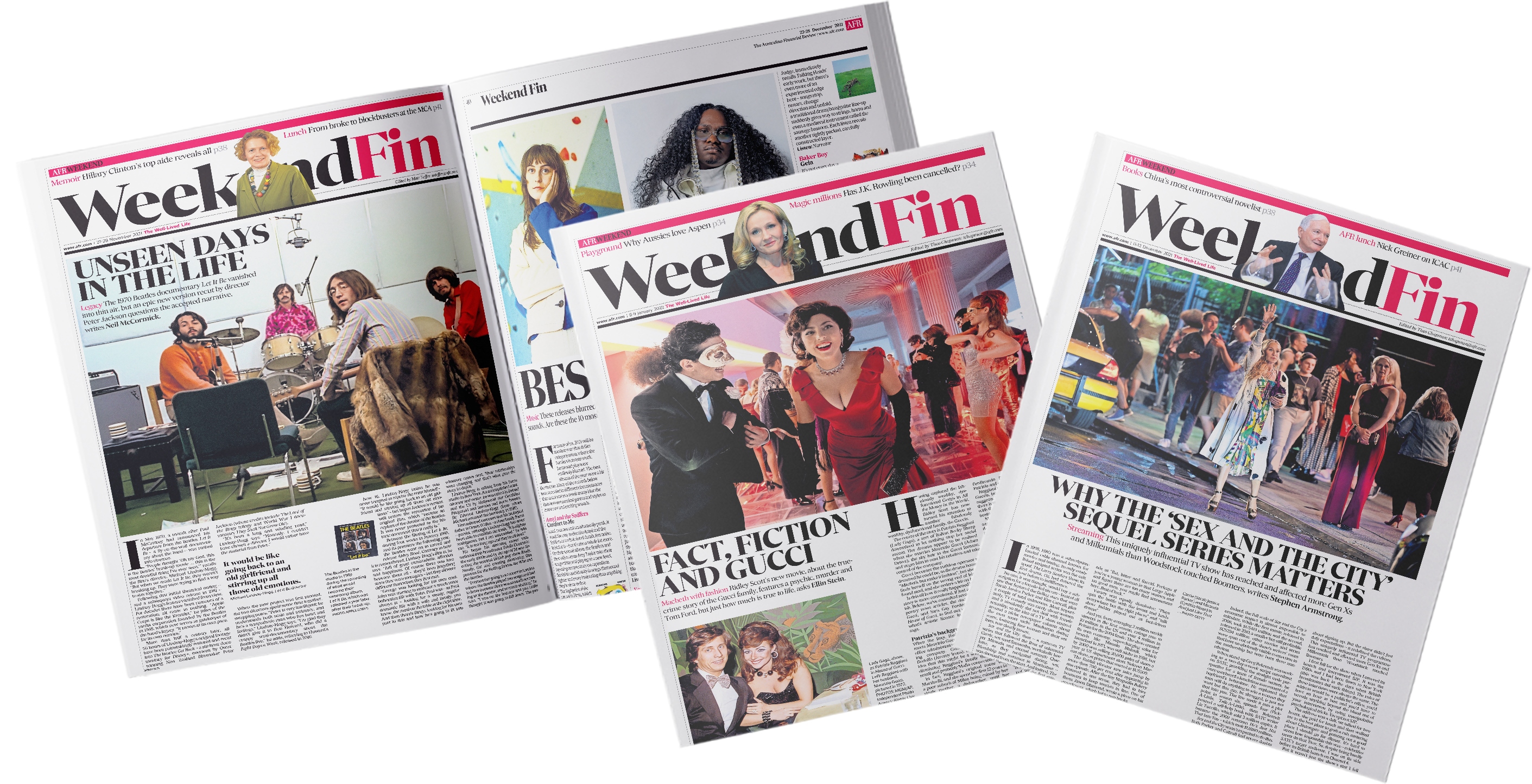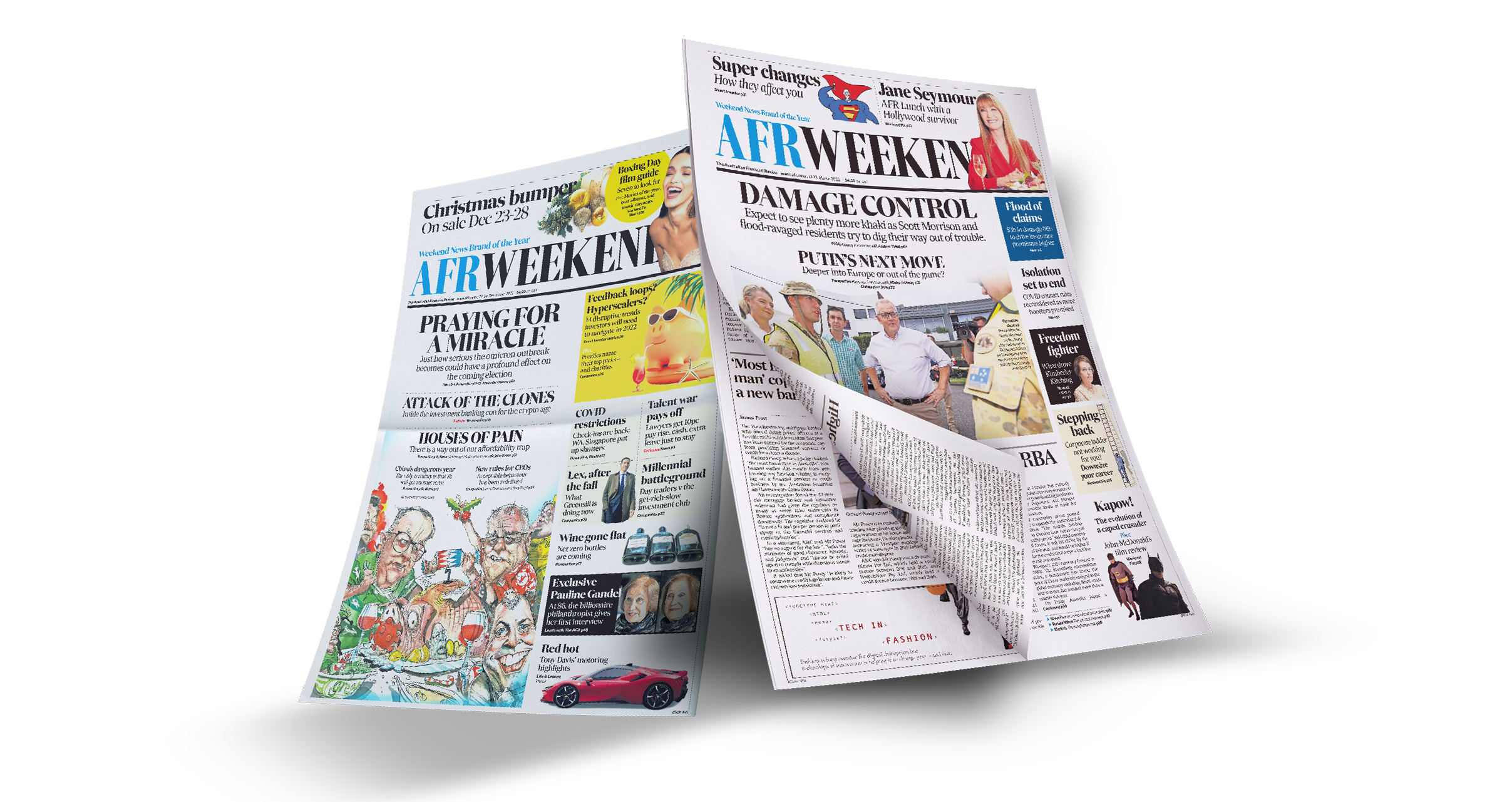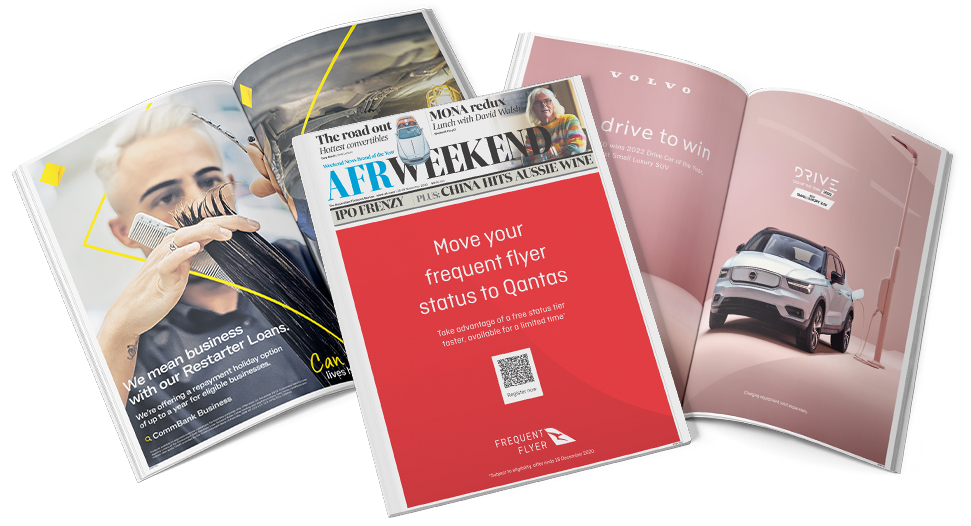
Rethink Ink
Meet AFR Weekend Editor,
Andrew Burke

“We set out to provide worth to our readers every weekend." AFR Weekend’s Andrew Burke discusses how to give your readers what they need to know and what they want to read.
In B&T's ongoing Rethink Ink series, we chatted with AFR Weekend editor Andrew Burke. In his seven-year tenure, AFR Weekend has grown to be one of the most read newspapers in Australia, enjoying significant print and digital growth despite the pandemic. And As Burke reveals, its success isn't all about insider stock market tips.

We all know the AFR during the week, but is the weekend edition all for stock market addicts who can’t switch off? The “money never sleeps” brigade?
It’s interesting and it’s hard to measure this stuff. My impression, which comes from a lot of readership surveys we’ve done, is that people read the weekend edition of the AFR as much for the investment advice as the news and political analysis.
The weekend gives people more time to read things such as our news features section that they might not have time for during the week. We’ve also got the Weekend Fin down the back of the newspaper and it's a larger, colourful section that always comes back as people’s favourite thing to read.
People buy it for what they want to know, but also what they want to read. That’s one of the more critical differences about what we do and the Monday to Friday edition.

Who is the AFR Weekend reader?
I’m quite proud of the fact that with the AFR Weekend we have a position that’s in the middle of the market in terms of where more financial newspapers lie.
Sure, we believe in the markets, and we play in that centre right, but we’re in the middle of the market, as far as politics are concerned.
On a political level we want to be credible, and you never want a reader to know what they’re going to read before they get there. From that respect, I think that’s something our readers value in the product. There’s independent critical analysis that’s not necessarily coming from one side of politics or the other.
If the bookies are to be believed, Albo looks a shoo-in at the next election.
I can’t imagine AFR readers being too thrilled about that.
You’d be surprised, but our readership is only marginally more skewed to the Coalition, by a few percentage points. Our view at the AFR Weekend has always been to take each of the party’s polices on their merit and never necessarily from a political party view. We just report what’s happening and from that we draw our analysis. It’s not like we’re preordained, just because one party comes up with a policy. We’ve been very critical of the government over lots of things recently.

A criticism of the AFR would be that it feels quite “male” in its style and reporting. How do you respond to that?
We’re very conscious to ensure there’s a balance in who we are interviewing. I understand that business and politics is often deemed as a very male pursuit and so we are active in trying to write about women as much as we can, never just for the sake of it. The anecdotal evidence is that a lot more women now read the AFR Weekend.

This all makes for a prestige environment for advertisers.
Obviously on the weekend you’ve got a lot more time to engage with the reader. Something I’m quite proud of is that 70 per cent of our readers aren’t subscribers. That means they’re going down to their newsagent every Saturday morning to seek us out. You always want more subscribers, but I’m proud that our readers want to seek us out, and with that comes reward for the brands that form part of our product. There’s a value exchange for a product when a reader must pay for it.

We hear about the “death of print” all the time. But the AFR Weekend’s numbers certainly tell a different story, print sales remaining surprisingly strong.
It’s a fact of life that people are carrying a little computer around in their pocket all the time these days. News is instant. But all the stories in Saturday’s paper are online on Friday afternoon, albeit behind a paywall, and our readers are still quite happy to go into a newsagent the following morning and part with $4.50 for the printed copy. I also think we have entered a period where print is being celebrated again by brands and creatives for its ability to cut through the digital tsunami and offer consumers escapism and a focus away from the always-on digital world.
Obviously B&T’s core audience is adland. How difficult can it be to take a print product like the AFR and try and sell its merits to 20-somethings in a media agency?
People read the AFR in the office, even more so now that they are no longer working from home as much. On the weekend people are reading it in their homes, and at the same time they’re making a lot of purchasing decisions about things like investing, holidays or cars, whatever. Those sorts of decisions are made by couples and that’s where AFR Weekend comes in. People are engaged with it around the coffee table, they’re less likely to be on the phone, on the laptop, on the emails. I like to think our content goes across the demographic divide in the house, the husband or the female executive. And so you get more eyeballs on these pages.

For all of COVID’s faults, it’s been a boon for people seeking out media. TV and radio numbers are up markedly. How has that played out for the AFR Weekend readership?
Broadly speaking, we’ve had large increases in our digital paying subscribers and that’s enabled us to hire 20 new staff in the last couple of months. In terms of print, we’ve held up our readership really well. We saw a print readership spike of 54 per cent during the height of COVID. What we’ve been really conscious about is delivering news about the pandemic that is relevant to people. You don’t want to scare readers, you want to provide worth to your readers.



